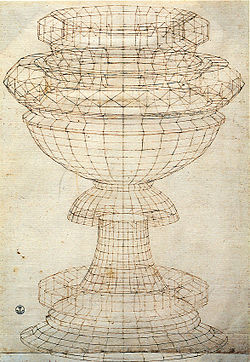
Title: A Comprehensive Guide to the Evolution of Mathematics: Superior Options to “The Secret Lives of Numbers”
In 2024, Kate Kitagawa and Timothy Revell published The Secret Lives of Numbers: A Global History of Mathematics & Its Unsung Trailblazers (Penguin). Promoted as an innovative and inclusive account of the history of mathematics, the book has generated both acclaim and critique. Historians of mathematics and serious readers prioritizing depth over flair contend that this popular publication offers more storytelling than historical accuracy. Thus, for those seeking a more substantial introductory text on the history of mathematics, the query arises: what should one select instead?
This article, drawing on years of reading and research from an experienced historian of mathematics, presents a variety of alternative texts—ranging from general surveys to specialized monographs—that provide more trustworthy insights and a deeper connection with the comprehensive narrative of mathematical progress.
I. General Introductions to the History of Mathematics
1. Carl B. Boyer – A History of Mathematics (1968; 3rd ed. 2011, edited by Uta C. Merzbach)
Boyer’s seminal work continues to be a cornerstone text. It delivers extensive coverage from Mesopotamia and Egypt to contemporary Europe, featuring relatively balanced segments on Chinese, Indian, and Islamic mathematics. The third edition updates and enriches these non-European contributions, addressing some earlier biases.
Recommended for: Readers looking for a thorough, conventionally-structured account of mathematical progression.
2. Victor J. Katz – A History of Mathematics (3rd ed., Pearson, 2014)
Katz is esteemed as one of the most thorough and globally inclusive historians of mathematics. His comprehensive textbook (over 900 pages) meticulously examines the mathematics of Mesopotamia, Egypt, China, India, the Islamic world, and Europe.
For a more concise alternative, Katz’s A History of Mathematics: Brief Edition (2003) condenses insights into 576 pages.
Recommended for: Students, educators, and committed readers seeking a multicultural and organized perspective on mathematical history.
3. Morris Kline – Mathematical Thought from Ancient to Modern Times (1972)
While expansive in scope, Kline’s analysis is predominantly Eurocentric. The sections addressing non-Western mathematics are limited and categorized simply.
Consider also his earlier work, Mathematics in Western Culture (1953, 2008), for a more philosophical examination of mathematics’ significance in European intellectual history.
Recommended for: Those primarily interested in the European lineage of mathematical growth through a philosophical viewpoint.
4. Snezana Lawrence – A Little History of Mathematics (Yale University Press, 2025)
Although yet to be published (as of this writing), Lawrence’s forthcoming book is expected to offer a succinct, engaging, and well-researched introduction. With 288 pages and expertise in math communication, Lawrence may strike an optimal balance between academic rigor and accessibility.
Recommended for: General readers and newcomers desiring a readable yet thorough introduction.
II. Sourcebooks and Anthologies
1. Victor J. Katz (Editor) – The Mathematics of Egypt, Mesopotamia, China, India, and Islam: A Sourcebook (2007)
This significant collection features original excerpts from ancient mathematical writings along with expert analysis. It is perfect for readers keen on uncovering the authentic “voices” of global mathematics.
Also by Katz:
– Sourcebook in the Mathematics of Ancient Greece and the Eastern Mediterranean (2024)
– Sourcebook in the Mathematics of Medieval Europe and North Africa (2016)
Recommended for: Readers eager to delve into original texts and scholarly interpretation.
2. Ivor Grattan-Guinness – The Rainbow of Mathematics (1997)
Rather than a narrative history, this work serves as an encyclopedic resource that organizes mathematical development by theme and period. It includes extensive bibliographies, making it a valuable reference tool.
Notably, he also edited the expansive Companion Encyclopedia of the History and Philosophy of the Mathematical Sciences (1994), spanning two volumes (1806 pages in total) with detailed essays by prominent historians.
Recommended for: Researchers and advanced readers seeking supplementary material or further exploration.
III. Thematic and Specialist Monographs
1. Kim Plofker – Mathematics in India (Princeton, 2009)
This publication explores India’s rich mathematical heritage, featuring the notable Kerala School. Plofker offers a nuanced, contextualized view of Indian contributions, sidestepping nationalist exaggerations.
Recommended for: Anyone earnestly interested in Indian mathematics within its historical framework.
2. J. L. Berggren – Episodes in the Mathematics of Medieval Islam (Springer, 2003)
Berggren, a prominent authority, presents an academic yet accessible examination of Islamic mathematics, providing the subject with the depth it merits.
Recommended for: Readers investigating Islamic advancements in algebra, geometry, and trigonometry.
3. Eleanor Robson – Mathematics in Ancient Iraq: A Social History (Princeton, 2008)
This exceptional volume delves into the